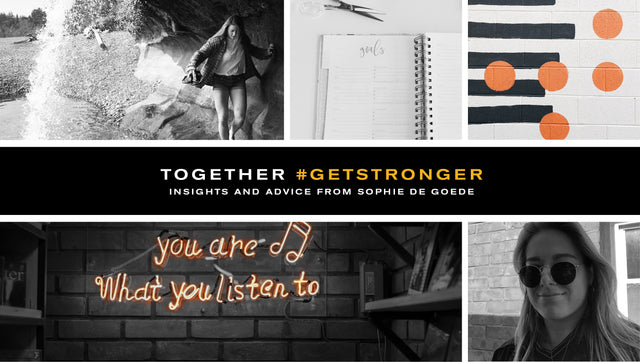GET STRONGER with Sophie De Goede
You might think the pressure of being the daughter of a former – and highly respected – Rugby Canada Men’s 15s captain, Hans de Goede would be a daunting task for an up and coming player. But rugby has always been part of Sophie’s life, and her path, along with basketball and excelling at her studies. A natural-born leader, Sophie has captained her team in the past. In terms of drive, she is always hardest on herself, always striving for more. This young superstar shared her perspective on what it takes to balance all her priorities without compromising on her rugby dreams:
Where do you think your game can improve through fitness training?
SDG: Speed has always been an area of focus for me and that explosive power is still something I work on in the weight room continually, knowing that it can make a really significant impact on the field.
How do you manage physically being relatively young on the National Team?
SDG: I was very fortunate to have great coaching in Jenn Joyce with the Canadian Sport School when I started lifting in grade 10. She was amazing at introducing me into more complex and heavy lifts gradually so that my body was able to adapt. I think having that strong base has made a big difference for me as a younger athlete still growing into my body.
How important is sleep to your training?
SDG: I’ve found that, for me, everything seems more manageable and attainable after a good night’s sleep. That more subjective feeling coupled with the objective science, supporting sleep has led me to prioritize it as much as possible. My fitness results, focus and mood are all better the more rested I am. I try to hit 8 hours a night if possible. With school demands on top of sport though, this can be a bit tough and I’m normally closer to 6.5 – 7 hours.
How do you manage your time between school and training?
SDG: I like to get my fitness training done first thing in the morning if possible; it kickstarts my routine and gives me more flexibility later in the day. After training, I’ve tried to schedule all my classes through the morning and early afternoon so that I have an hour or two afterwards to get some studying in before our evening practices. I also plan my week out on each Sunday so that I know ahead of time if I have a free hour here or there that I can take advantage of for extra skill work, active recovery, more studying, or maybe a nap. I find this really helps as seeing my week laid out in front of me makes it feel more manageable than having to try to keep track of training times, meetings, and due dates all in my head.
What is a piece of advice to get through low motivation days?
SDG: I try to live by the maxim, “Let your goals dictate your actions.” I have pretty clear and concise goals that I’ve set for myself both in sport and in life, so on days where I don’t feel like going to the gym I remind myself that my commitment to my goal has already made this decision for me. Each productive training session is a step closer and each missed or lacklustre training session is a step back. I also always come out of fitness training in a better mood and more energized for the day so I try to keep that in mind as a motivator as well.
How important is music to your workout and what is your song of choice to get motivated?
SDG: I’m definitely a fan of music for the workout to keep it fun and I’ve been listening to Dirty Love by Mt. Joy a lot recently.
How important is goal setting to your fitness goals?
SDG: Goal setting has been a great tool for me to help track my fitness progress, but also just to give myself little wins along the way. Constantly pushing your fitness can be draining so it’s helpful to try to prevent that by hitting goals along the way. It’s important to enjoy the feeling of achievement that comes with goal accomplishment no matter how small.
How has being a multi-sport athlete helped your rugby career?
SDG: I think being a multi-sport athlete growing up has helped my athleticism as a whole – physical literacy, body awareness in space, vision – and I think basketball especially has positively impacted my conditioning which has become a strong point of difference for me. Basketball has also given me a sort of release from rugby over the years so that I can focus my energy and attention elsewhere for a while and not burn myself out.
Who do you look up to in rugby?
SDG: I’ve always looked up to my parents for their successes on the pitch and their abilities as leaders. There are certainly other more current players who I admire – I could pull a name from either of our 15s or 7s Women’s National teams and find inspiration easily – but having grown up hearing my parents’ stories and learning their most valued lessons has motivated me more than anything else.
What do you think is the most important fitness exercise for a rugby player?
SDG: I think a push jerk type movement where being explosive is key and strength is required from both your lower and upper body can be really useful. Cleans as well for the power output and triple extension position.


